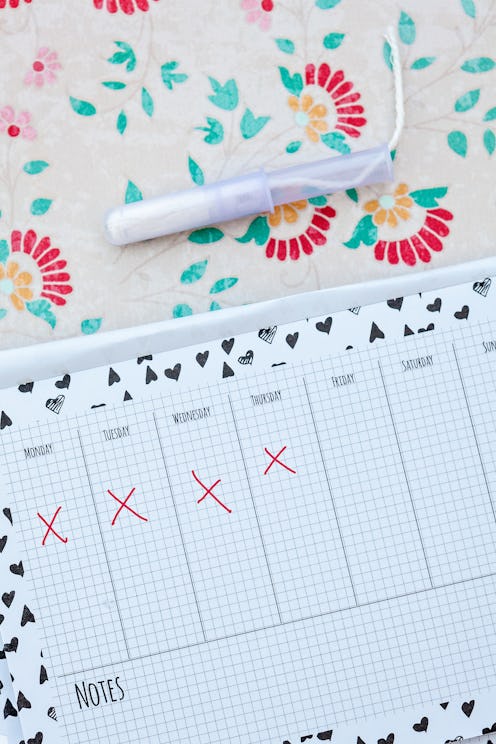Health
Can Daylight Saving Time Affect Your Period?
That time of the month doesn’t care what time it is.

Get ready to feel extra tired this coming weekend, when Daylight Saving Time begins. Daylight Savings Time is not a vibe because it leaves you feeling drowsy and sleepy no matter what you do — goodbye, one precious hour of sleep. But Daylight Savings Time’s effects on your body might make you wonder if the time change might mess with your period.
Whether you have to set your clocks forward or back, Daylight Saving Time can affect your internal clock, which leaves you feeling almost jet-lagged. This is because your body's circadian rhythm has been thrown off course, and according to the National Sleep Foundation, this affects how much melatonin is released in your system. Melatonin is the sleep hormone that alerts your body when it's time to go to sleep based on daylight.
If your internal clock is in a state of disarray, what does that mean for the rest of your body? It’s natural to wonder whether it can affect your menstrual cycle, but there’s no evidence that that’s possible — it’s just an hour’s time change, after all, and most people get used to it by the middle of the following week.
However, it's worth noting that a wholly different sleep pattern can change up your period. “Circadian rhythms can potentially change a woman’s menstrual cycle and fertility,” Dr. Tahir Chauhdry D.O., chairman of the OBGYN Department at Olean General Hospital, tells Bustle. Shorter sleep episodes, he says, can affect the timing of your luteal phase, or the time in your cycle just before you menstruate. Luteal phases tend to cause sleep issues because of cortisol and melatonin levels anyway, he says, so it can be become a reinforcing cycle: the worse you sleep, the more your period may get off course.
Basically, not getting enough sleep can affect your period. So, if Daylight Saving time makes you stay up later because you couldn't wake up as early as usual, and you get stuck in that pattern for more than a day or two, that may throw off Aunt Flo’s visit. If your sleeping schedule is impacting your melatonin levels — like if you work a night shift, and therefore have less access to daylight— that can mess with your cycle as well. A study published in Sleep Medicine in 2007 found that people who work irregular hours are more likely to experience irregular periods.
You probably don't need to worry about this happening if you just feel a little extra sleepy on Sunday or Monday. But if Daylight Saving Time really, really changes up your sleep schedule, then you could theoretically see a change to your period. Try to make an extra effort to sleep well Sunday, and you should get through the transition with ease.
Expert:
Dr. Tahir Chauhdry D.O.
Study cited:
Baker, F. C., & Driver, H. S. (2007). Circadian rhythms, sleep, and the menstrual cycle. Sleep medicine, 8(6), 613–622. https://doi.org/10.1016/j.sleep.2006.09.011